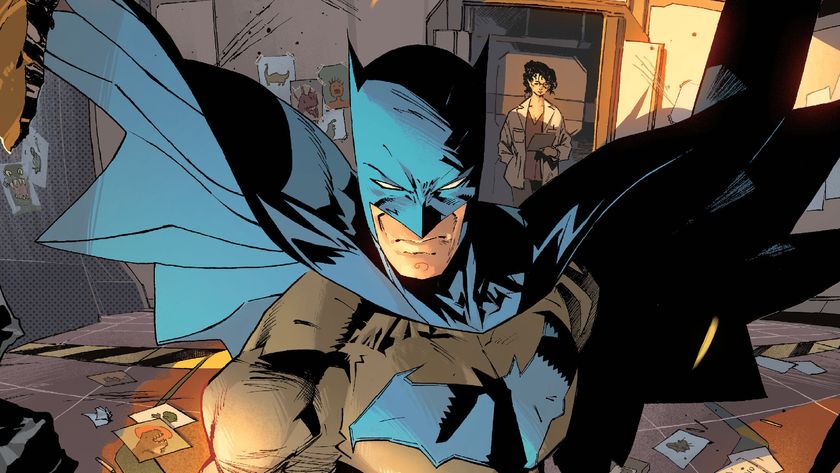The Top 7... Reasons the Wii will be remembered fondly
We come to praise the Wii, not just bury it

The Wiis Eulogii
This Sunday marks the release of the Wii U to the general buying public, and as exciting as that may be, it also marks the end of an era for its predecessor, the Wii. Since its launch November 19, 2006, the Wii has been a huge hit, but for the past few years discussion of the console has been limited to dust-covered Wii, lacking graphics, and gifs of people playing Wii Music. But the Wiis legacy is so much bigger than that, and we can prove it. As we say farewell to the Nintendos motion controlled monster, lets take a look back at the influence it had not only on gaming, but on the world at large.
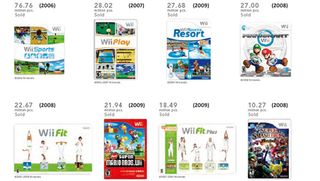
7. It won its console generation
If you judge the Wii on its graphics or the number of M-rated hits, then its easy to assume it got its head caved in by HD powerhouses like the PS3 and 360. And yet the stats tell a different story, as the Wii steamrolled its competition in sales. According to current global totals, Nintendo has sold nearly 100 million systems worldwide, while the 360 and PS3 are in a virtual dead heat around 70 million. Even with Nintendo abandoning the system to focus on Wii U, its unlikely that its competitors will be able to catch up by this time next year.
Fine, you may counter, people bought the system, but the best selling games were on 360/PS3. Wrong again. Global sales heavyweights like Black Ops or Modern Warfare 3 sold over 20 million a piece, but are left in the dust by Wii Sports Resort, New Super Mario Bros Wii, Wii Play, and Mario Kart Wii. All of those approach or surpass 30 million each, and they do so without the benefit of being multiplatform like Call of Duty. Nintendo hadnt seen numbers like those since the NES era, a generation it won only slightly more decisively than it did this one.
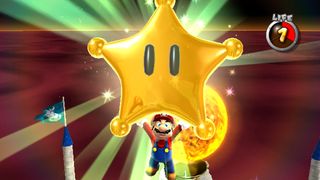
6. It had great exclusives
Its easy to look at the Wiis software library and only see what it doesnt have, especially after the last few years. Even though virtually every third party franchise went multiplatform, the Wii missed out entirely on blockbusters like Mass Effect, Assassins Creed, and Elder Scrolls, or got visually lackluster ports in the case of Call of Duty. However, in a generation defined by the end of third-party exclusives, the Wii was awash with content you couldnt find anywhere else, from Nintendo and many other major third party.
The Wii had the expected barrage of new Nintendo classics, games like Super Mario Galaxy, The Legend of Zelda: Skyward Sword, and Super Smash Bros. Brawl, along with intriguing throwbacks like Kirbys Epic Yarn, Sin and Punishment: Star Successor, and Donkey Kong Country Returns. Even without Nintendo, publishers as diverse as Sega (MadWorld), Capcom (Tatsunoko vs. Capcom), Konami (Silent Hill: Shattered Memories), EA (Boom Blox), Marvelous (Little Kings Story), Disney (Epic Mickey), and Grasshopper (No More Heroes) all found ways to make unique new games for the Wii. Yes, many of those werent huge sellers, but their profits cant take away from the fact that these were incredible gaming experiences you could only find on the Wii.

5. Developers learned to do more with less
The Wiis immediate sales success surprised many people, particularly within the development community that had underestimated it. Many rushed to prepare new games for its growing audience, and had to do so without the technological advantage found on the 360 or PS3. And in the best cases these constraints pushed developers to new heights of creativity, and it led to the dozens of games built around new characters and gameplay styles.
Some companies found artistic workarounds for the lesser graphics, like Red Steel 2s cel-shaded approach to sci-fi or MadWorlds black, white, and red visuals. Then there were games that brought new levels of artistry to 2D, hand drawn art like Muramasa: The Demon Blade and A Boy and His Blob. Even releases like Dead Space: Extraction and House of the Dead: Overkill took popular franchises and remade them as graphically impressive rollercoaster rides through on-rails shooting galleries. After 2010, most third-party publishers had pulled back from the Wii, but for a while the console had some of the most experimental games of its generation.
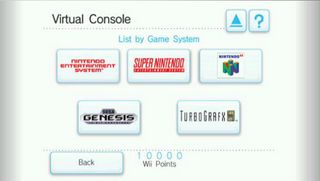
4. Virtual Console introduced a new generation to iconic titles
Once upon a time Nintendo was very guarded of its deep library of classic games. To give you some idea, it would be a cause for celebration when Nintendo re-released games from the Mario or Zelda series, while most other franchises never got a chance. Then, in 2006, the Wii opened the floodgates, bathing new and old players alike in Nintendo nostalgia via the Virtual Console, meaning swaths of gamers could now enjoy hundreds of games they likely had never heard of before.
Over the last six years, VC has become a treasure trove of games from the NES, SNES and N64, but Nintendo didnt limit the service to just its systems. Tons of Genesis, Neo Geo, Master System, Commodore 64, TurboGrafx-16, and arcade games are all included in the service. And across all those systems were dozens of titles that were either out-of-print or had never been released outside Japan. The service will even see continued life on the Wii U, giving a whole new generation of gamers a chance to catch up on gaming history one download at a time.

3. It brought new audiences to games
These days it seems like gamers come in two flavors: Ultra hardcore superfans and casual, Facebook-loving normal folks. As the divide between the two audiences continues to expand, its worth noting that for a while it seemed like the two could live together in harmony, as the Wii brought together gamers of a multitude of backgrounds. Where did all these new players come from?
Some were lapsed gamers put off by the increasingly insular world of console games, finding the Wii Remote far more welcoming. Others bought it because playing Wii Sports became the new fad, whether you were a college freshman or a senior citizen. No matter the reason, the console became an impressive force of unification, something that proves gamers dont need to define the market into us vs. them.

2. It really was a revolution, just not the one we expected
Originally codenamed The Revolution, many rejected the idea that it could actually change the market once the family-friendly Wii came to stores. While the 360 and PS3 pushed the envelope with graphics and online functionality, the Wii seemed to aim low with its emphasis on motion-controlled gaming. But by 2009 the Wii's impact on the market was evident, as Nintendos competitors did their best to catch up.
Microsoft introduced the Kinect, a completely hands-free experience that seemed like the natural evolution of the Wii, though its spotty tech still hasnt caught up with its vision. Meanwhile, Sony had less success with the Move, a wand-style controller thats virtually identical to the Wii Remote. No matter the success of either, they prove that the simple fun of the Wiis motion interfacehas now become a critical feature to the future of gaming.
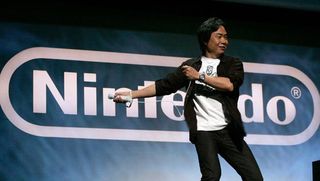
1. It saved Nintendo
The Wii changed the gaming market, introduced millions of new people to the world of video games, and was incredibly profitable despite a global recession. Still what gamers should be most happy about is that, after almost a decade of falling behind on consoles, the Wii made Nintendo a market force again. And despite what some may think, it did so without turning its back on its fans.
From 1996 to 2006 Nintendo was doing great in the handheld market, but the N64 and particularly the GameCube made it seem like the publisher would go the way of Sega and leave the console race to mega-corporations like Sony and Microsoft. Instead, the Wii doubled down on simple fun, the cornerstone of Nintendos past successes, and the move propelled it from third to first. And it did so by servicing the mass market with titles like Wii Fit, but it still gave longtime fans hardcore experiences like Super Mario Galaxy. Thanks to that mix of games, Nintendo is poised to keep its lead with the Wii U, instead of facing the irrelevance that the potential failure of the Wii could have meant.
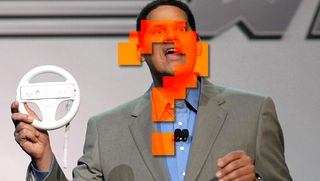
Wii will remember you
Any other Wii devotees out there that want to celebrate the console as it drifts into the sweet hereafter? Tell us why you'll remember the system fondly in the comments, and we'll add the most popular reason to our community choice on Friday!
Want to learn more about the Wii? Check out our list of the best Wii games and a blast from the past of 2009s greatest Wii games (that died at retail).

Henry Gilbert is a former GamesRadar+ Editor, having spent seven years at the site helping to navigate our readers through the PS3 and Xbox 360 generation. Henry is now following another passion of his besides video games, working as the producer and podcast cohost of the popular Talking Simpsons and What a Cartoon podcasts.

"If we can do it… This will be something groundbreaking": PUBG creator Brendan Greene is five years into making a 10,000km "realistic Minecraft" – but there's still a decade to go
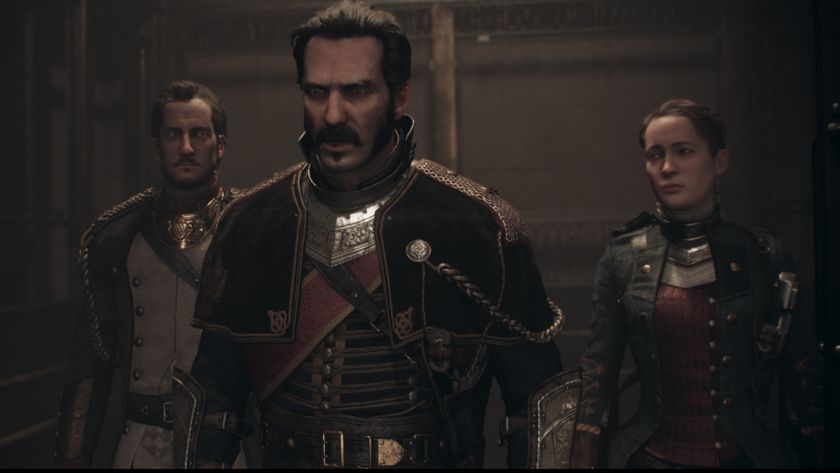
I finally played The Order: 1886 for its 10-year anniversary, and I can't help but wonder where a scrapped sequel could have gone

"If we can do it… This will be something groundbreaking": PUBG creator Brendan Greene is five years into making a 10,000km "realistic Minecraft" – but there's still a decade to go

I finally played The Order: 1886 for its 10-year anniversary, and I can't help but wonder where a scrapped sequel could have gone
Most Popular






